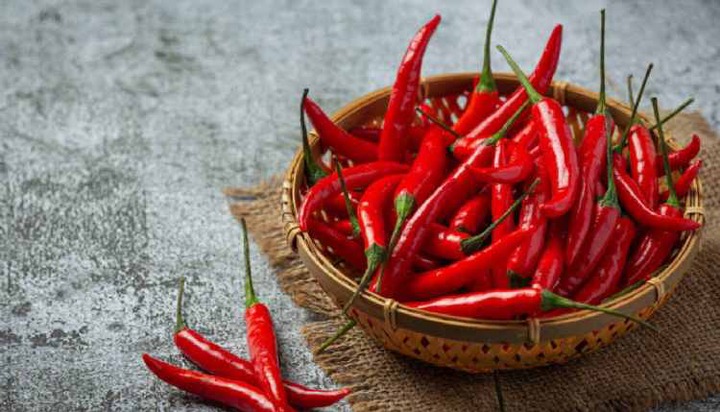
🌶️ 1. That Spicy Heat? It’s Not Just in Your Mouth
The signature burn you feel after eating chillies comes from capsaicin, the active ingredient in hot peppers. When consumed, capsaicin binds to the pain receptors in your mouth and tongue—the same ones that detect heat. This tricks your brain into thinking you’re being burned, even though there’s no actual heat involved….CONTINUE FULL READING>>>
What Happens Next:
• Your body reacts by increasing saliva and tear production
• You may start sweating
• Your face might flush
• You might feel a temporary rush of adrenaline
This effect is short-term but intense—often referred to as a “pepper high.”
🩸 2. Boost in Circulation and Body Temperature
Fun fact: This is why spicy foods are often recommended in cold climates—to help keep you warm!
💨 3. Temporary Digestive Discomfort
For some people, especially those not used to spicy food, eating chillies can cause digestive side effects such as:
• Stomach pain
• Cramps
• Bloating
• A burning sensation during bowel movements (yes, it’s real)
These effects vary from person to person. If you’re sensitive or have gastrointestinal issues like ulcers or acid reflux, it’s best to eat spicy foods in moderation.
🧠 4. A Natural Mood Booster
Believe it or not, that burning sensation might actually make you happier. How?
When your body senses pain from capsaicin, it releases endorphins (natural painkillers) and dopamine (the feel-good chemical), similar to what happens during exercise. This can result in a temporary mood lift, reduced stress, and even a mild “high”—which explains why some people crave spicy food regularly.
❤️ 5. Long-Term Health Benefits
When eaten regularly and in moderation, chillies can support overall health in several ways:
• Anti-inflammatory effects: May help with arthritis and joint pain.
• Cardiovascular health: Can lower cholesterol and improve blood flow.
• Weight management: The metabolism-boosting properties of capsaicin may help burn more calories.
• Blood sugar control: Some studies suggest chillies may help regulate insulin levels.
⚠️ When to Be Cautious
• If you have ulcers, gastritis, or IBS, avoid hot chillies
• Start with milder peppers if you’re new to spicy food
• Drink milk, not water, to cool the burn—it neutralizes capsaicin better
🔥 Final Thoughts
Chillies do more than spice up your plate—they influence your body in powerful ways. From a fiery mouth to boosted circulation, better mood, and long-term health perks, capsaicin is a compound worth appreciating (with caution!). Whether you’re a spice lover or a mild heat fan, now you know what’s really happening after every bite of that hot pepper.CONTINUE FULL READING>>>
